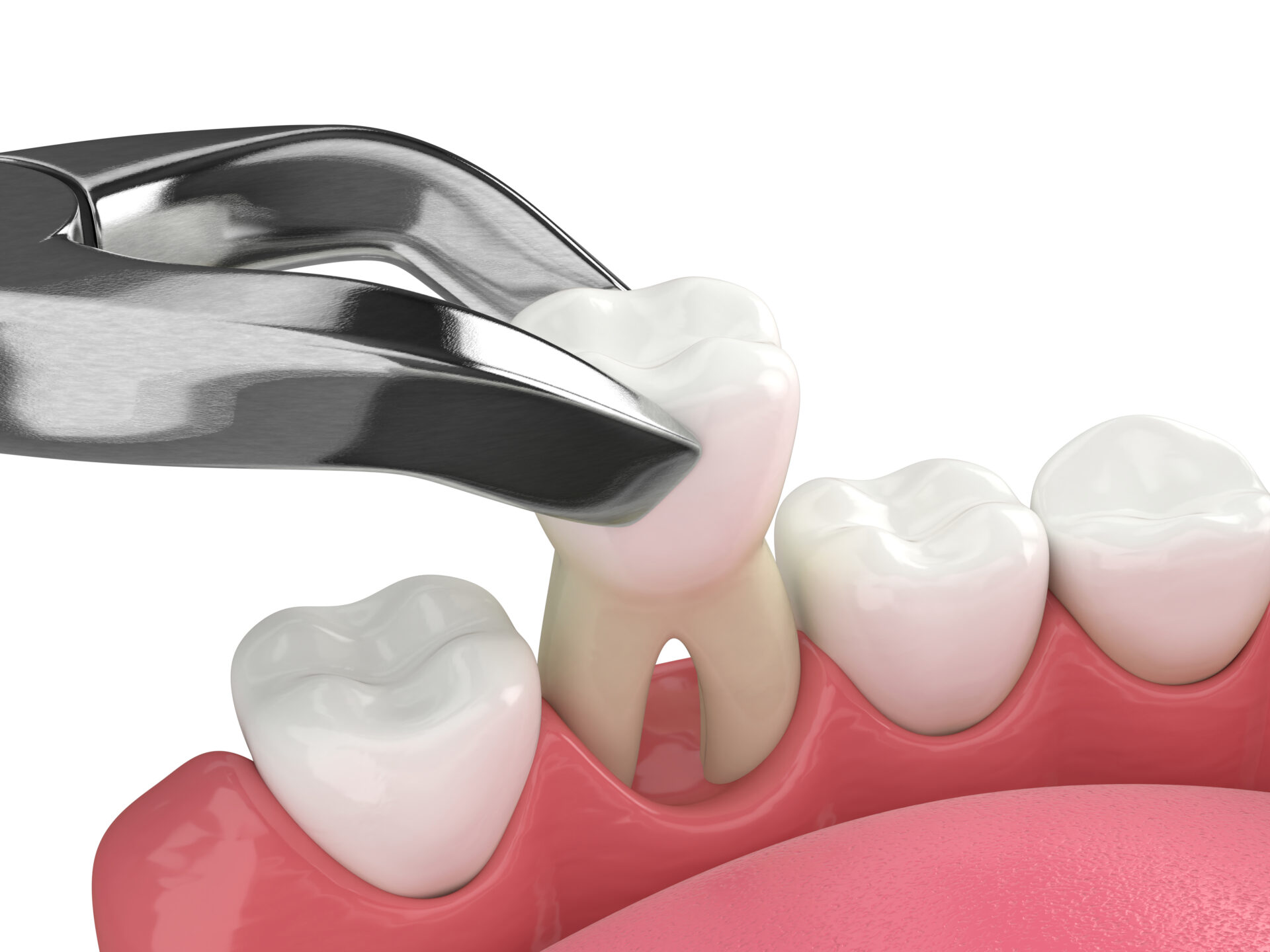Despite the fact that adult teeth are designed to last a lifetime, many people end up needing to get one out. Crowded teeth, gum disease, and wisdom teeth that have become impacted are just a few of the situations in which tooth extraction may be essential.
What you do following a tooth extraction may feel as frightening as the treatment itself because the infection can be avoided only with careful aftercare. How do you tell if the area around your extracted tooth is healing properly? All the information you need is right here.
What is a Tooth Extraction?
Extraction is the removal of a tooth from its jawbone socket. After fillings or root canals fail, our dentist may recommend extraction.
The dentist numbs the tooth region to promote patient comfort. The tooth is loosened and pulled with dental instruments. Before extraction, the tooth may need to be broken into pieces.
After the extraction, the dentist may use gauze to reduce the bleeding and promote clotting. Patients are provided post-operative care instructions to hasten healing and reduce infection risk.
Wisdom tooth impaction, crowding, and the need for dentures or implants are common reasons for tooth extractions. Post-extraction care is essential for a quick tooth extraction recovery and minimal complications.
Healing Stages of Tooth Extraction
There are three phases of healing after tooth extraction: inflammation, repair, and remodelling.
After a tooth is extracted, the inflammatory phase begins, and the immune system begins clearing the area of any remaining bacteria and debris. Inflammation, redness, and pain are all symptoms of this. Immediately following tooth removal, inflammation is common and usually subsides within a few days.
Once the inflammation phase ends, the tooth extraction healing process can begin. At this point, your body is busy mending the gum and bone that were injured when your tooth was extracted. A maximum of six weeks may pass throughout this procedure.
After a tooth has been extracted, the final phase of recovery involves bone growth in the empty socket. Overall, the treatment may last up to 12 weeks total.
Things to Avoid After Tooth Extraction
Avoiding some activities can help you heal more quickly and prevent issues after having a tooth extracted.
- Don’t use tobacco in any form. Smoking impedes recovery because it lowers blood flow to the incision. It also raises the possibility of a painful condition called a dry socket, which can slow healing.
- Don’t use a straw if you can help it. Blood clots can be disrupted by sucking on a straw, which might slow recovery.
- Stay away from alcoholic drinks. Dislodging the blood clot due to alcohol use can also slow healing.
- Don’t chow down on anything too crunchy. Dislodging the stitches will slow the healing process, so avoid eating anything too hard or crunchy.
How Should a Tooth Wound Look After It Heals?
Patients often have trouble telling if they are properly healing after tooth extraction. Light bleeding, swelling, and some mild pain or discomfort are all to be expected in the first few days as the anesthetic wears off. Sore throats and stiff jaws are often common, as are discoloration or bruising.
Fragments of teeth can be felt edging their way out of the gums or jaw in certain people. It is quite normal, and any pieces present should emerge on their own. See a dentist if they don’t fall out on their own.
The goal during the healing process is to see daily improvement; thus, keeping an eye on the region is essential. If you’ve recently had a tooth extracted, it can be helpful to see examples of healed extraction sites at the same stage of healing as your own.
Feel free to contact our Yaletown dentist if you have any doubts about how well your tooth extraction is healing. Most people recover normally after having teeth extracted, although it’s always preferable to be cautious.
Tooth Extraction Healing in Yaletown
When carried out by a competent medical practitioner, the extraction of wisdom teeth is a significantly simpler procedure. Once you see that your third molars or wisdom teeth are beginning to erupt, it is time to schedule a visit to the dentist in Yaletown.
Our specialists at Abba Dental, who have received extensive training and are highly qualified in the field, can provide the care that you need for your wisdom teeth. Schedule an appointment and get personalized care and support!
